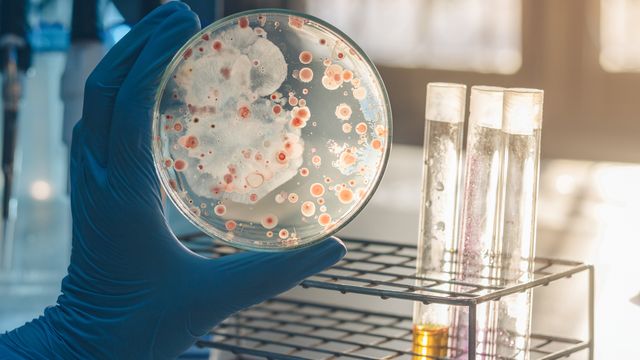Microbial Contamination Testing in Herbal Supplements
In today’s health-conscious world, the demand for herbal supplements has seen a significant increase. However, ensuring the safety of these products is paramount to protect consumers from potential harm due to microbial contamination. Microbial contamination can lead to serious infections and illnesses if not properly managed during production. Our laboratory specializes in providing accurate and reliable microbial contamination testing for herbal supplements, adhering strictly to international standards such as ISO 11731 and EU regulations.
The process begins with rigorous sample collection from various stages of production, including raw materials, intermediate products, final formulations, and finished goods. Proper sampling is critical; it ensures that the test results are representative of the entire batch or lot. Once samples are collected, they undergo a series of steps which include:
- Presumptive identification
- Culture-based isolation methods (e.g., TSA plates)
- Subsequent confirmatory tests using biochemical reactions and/or molecular techniques like PCR
The testing process is designed to detect common pathogens that could be harmful, such as Salmonella spp., Listeria monocytogenes, Staphylococcus aureus, Escherichia coli O157:H7, etc. This includes both aerobic and anaerobic bacteria, fungi, mold spores, and yeast.
| Step | Description | Standard Compliance |
|---|---|---|
| Sample Collection | Collection from raw materials, intermediate products, and final formulations. | ISO 11731:2018 |
| Culture-Based Isolation | Use of culture media to isolate viable microorganisms. | EU Directive on Herbal Products (EC No. 46/2016) |
| Molecular Identification | Detection and identification using PCR techniques. | ASTM E2983-20 |
The results of our testing are critical for ensuring the safety and efficacy of herbal supplements. Compliance with regulations helps manufacturers avoid costly recalls and potential legal issues. Our laboratory ensures that all tests meet industry standards, providing accurate data that can be used to improve product quality.
Scope and Methodology
| Step | Description | Standard Compliance |
|---|---|---|
| Sample Collection | Collection from various stages of production. | ISO 11731:2018 |
| Culture-Based Isolation | Use of culture media to isolate viable microorganisms. | EU Directive on Herbal Products (EC No. 46/2016) |
| Molecular Identification | Detection and identification using PCR techniques. | ASTM E2983-20 |
Customer Impact and Satisfaction
- Ensures compliance with international standards such as ISO 11731:2018.
- Avoids potential recalls due to microbial contamination.
- Reduces the risk of product liability lawsuits.
- Improves brand reputation and consumer trust.
Environmental and Sustainability Contributions
By ensuring that herbal supplements are free from microbial contamination, our laboratory plays a crucial role in maintaining the integrity of natural health products. This not only enhances consumer confidence but also supports sustainable practices within the healthcare industry.
We collaborate closely with manufacturers to implement best practices, which can lead to reduced waste and more efficient resource utilization throughout the supply chain. Our testing services contribute positively towards reducing environmental impact by ensuring that only safe products reach the market.





